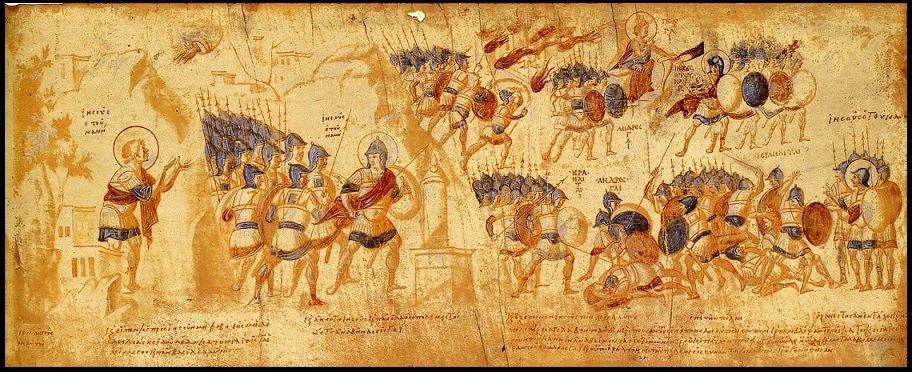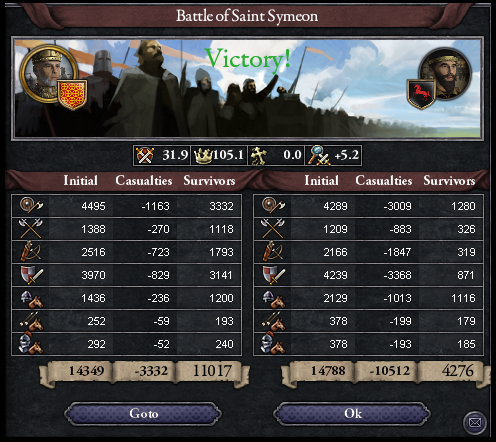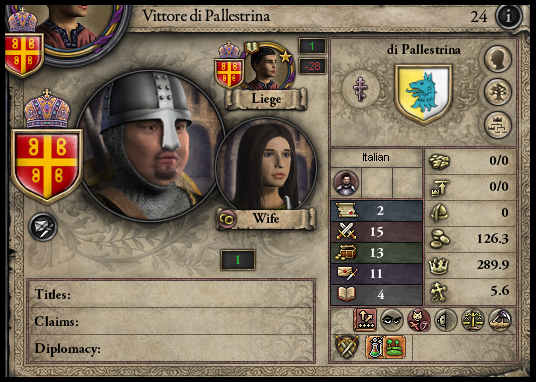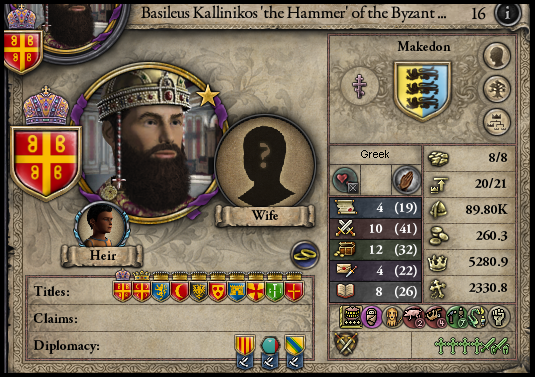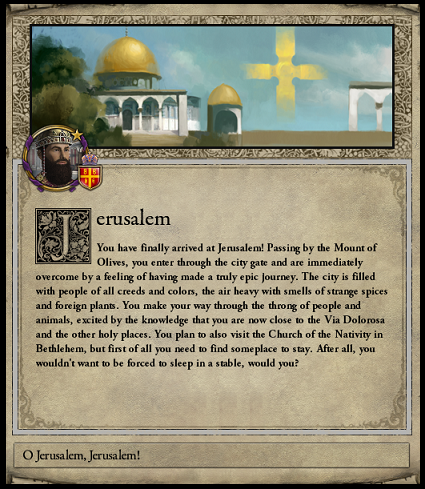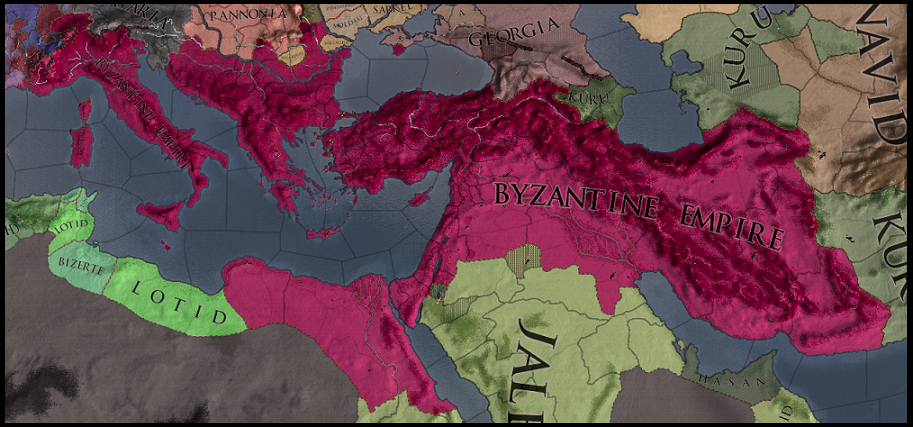guillec87: I know, I know. It caught me off guard I can tell you. Sadly his (admittedly not yet grown) son does not seem the stuff of greatness. 
Robert II: Thank you. In fairness some of my monarchs have had long reigns, even if it might not seem like it at the moment.
In fairness some of my monarchs have had long reigns, even if it might not seem like it at the moment.
Viden: Perhaps, though the Empire is very much about the drive to the Indus at the moment.
Specialist290: Great point about Konstas and Julian - that is rather eerie.
Evanthia is a great character and I'll try and explore her more before the end of her regency (and after should she live so long.)
Asantahene: Thank you! As you see things are far from calm just yet...
As you see things are far from calm just yet...
dangerogre: Well, that is one way of putting it.
Stuyvesant: You're right. Right now - or at least immediately before the civil war the religious question was finely balanced with the Orthodox faction in Constantinople, Rome and Jerusalem and the hertics in Antioch and alexandria.
Robert II: Thank you.
Viden: Perhaps, though the Empire is very much about the drive to the Indus at the moment.
Specialist290: Great point about Konstas and Julian - that is rather eerie.
Evanthia is a great character and I'll try and explore her more before the end of her regency (and after should she live so long.)
Asantahene: Thank you!
dangerogre: Well, that is one way of putting it.
Stuyvesant: You're right. Right now - or at least immediately before the civil war the religious question was finely balanced with the Orthodox faction in Constantinople, Rome and Jerusalem and the hertics in Antioch and alexandria.



